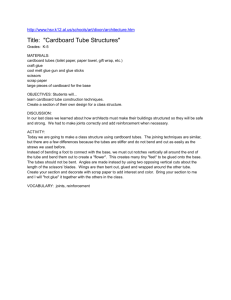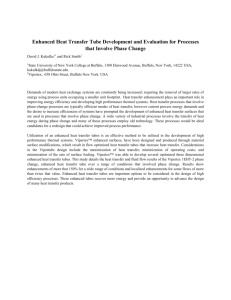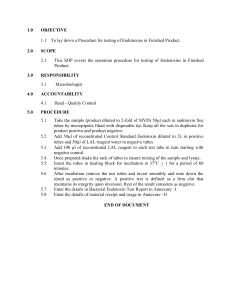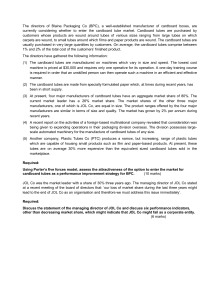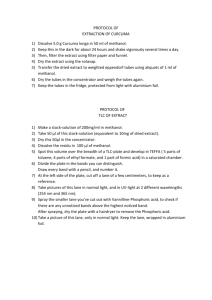Introduction 3
advertisement
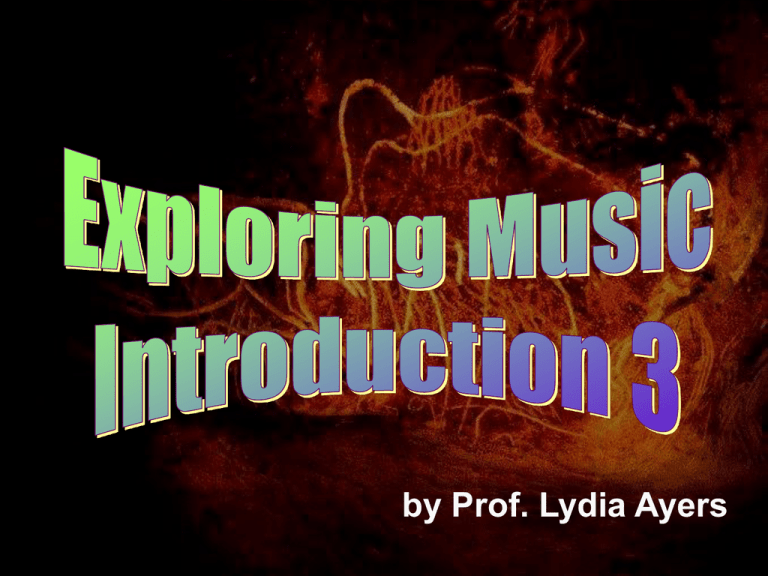
by Prof. Lydia Ayers Idiophones • among the oldest instruments • Self-sounding – idio = self – phone = sound • <1:15> Tongatong from the Philippines wooden frog (Thailand) seke seke (Ivory Coast) – Stamping tubes – Bamboo tube held in one hand, closed end at the bottom, is struck against the ground or a hard surface. – Palm of other hand partly opens and closes the end, changing the timbre. Tongatong from the Philippines http://www.geidai.ac.jp/~odaka/gcat/image/062.jpg Boom Boom Tubes • Can make from: – cardboard tubes – PVC pipes – water bottles • Playing them: – Strike them against a table or your hand • Can also tightly close one end – Clap your hands near the open end – Strike the open end with your hand or a hard object Stamping Tubes • Similar to Boom Boom tubes with closed end, and usually longer • Can make from: – cardboard tubes – PVC pipes • Stamp the closed end against the floor <7:5> Sanza, Mbira • “thumb piano” – nine to thirteen keys – player can modify the sound by stopping and opening the sound hole – extremely fast playing with singing sanza Sanza, Mbira • Can make body from: – wooden boxes – cardboard boxes – paper plates • Can make keys from: – – – – – – leaf rake tines flattened steel huge bobby pins bicycle spokes bamboo splints popsicle sticks <7:7> Balofon • wooden slabs • gourd resonators balofon T’rung • A wooden percussion instrument with xylophone-like sound. • Comes from the Tay Nguyen region of Vietnam • <5:09> Sao phong tieu (flute), t’rung, and angklung (bamboo tubes) – No finger holes – Performer produces melody by covering of the end of the flute and overblowing harmonics http://www.vietnamtourism.com/v_pages/vietnam/cult ure/music/vcm_dantrng.htm Woodstock Gamelan • Can tune aluminum tubes • Can mount on cardboard frame

